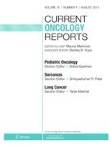
Abstract
Purpose of Review
Cisplatin has been established as one of the most important agents in multidisciplinary treatment for head and neck cancer (HNC). However, since HNC patients are often elderly and typically have several comorbidities, a limited number of patients can tolerate high-dose cisplatin in real-world HNC populations. We will provide a review of therapeutic alternatives to high-dose cisplatin-based treatment in the setting of definitive and postoperative chemoradiotherapy (CRT) or induction chemotherapy.
Recent Findings
Clinical criteria for CDDP ineligibility have been discussed in HNC. When considering cisplatin-based chemotherapy as part of a non-surgical approach, precise evaluation of the patient's physical condition, nutritional status, and comorbidities is needed. Upfront surgery is an important option with high curability, if a de-intensified non-surgical approach is estimated to be unavoidable. Although no prospective data are available regarding alternatives to definitive cisplatin-based combination therapy for patients undergoing a non-surgical approach, cetuximab, carboplatin, or split-dose cisplatin-based regimens may be employed for cisplatin-ineligible patients in clinical practice. The combination of immune checkpoint inhibitors with radiotherapy may be a promising novel approach, and some trials are currently targeting the specific cohort of patients ineligible for high-dose cisplatin.
Summary
There are no standard treatments for patients ineligible for high-dose cisplatin. A personalized treatment strategy should be proposed based on the individual benefit-to-risk ratio of each treatment option in patients ineligible for the standard of care. Prospective clinical trials for cisplatin-ineligible patients with locally advanced HNC still need to be performed



No comments:
Post a Comment